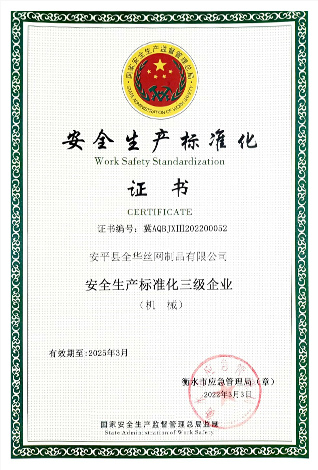Қар . 09, 2024 10:03 Back to list
Affordable Durable Gabion Retaining Walls for High-Quality Landscaping Solutions
High-Quality Cost Effective Gabion Retaining Walls
In engineering and landscaping, retaining walls are crucial structures that provide support to soil and prevent erosion on slopes. Among the various types of retaining walls, gabion walls have gained significant popularity due to their unique design, functionality, and aesthetic appeal. A gabion retaining wall consists of cages or baskets filled with stones, rocks, or other materials, forming a flexible, durable, and cost-effective solution for soil retention.
Understanding Gabion Walls
Gabion walls are constructed using wire mesh baskets, typically made of galvanized steel or PVC-coated steel. These baskets are filled with natural stones, which can range from granite to river rocks, or even recycled materials. The unique characteristic of gabions is their permeability, allowing water to flow through, thereby alleviating the pressure that can build up behind traditional retaining walls. This permeability minimizes the risk of hydrostatic pressure buildup, which is a common cause of wall failure in conventional structures.
Advantages of Gabion Retaining Walls
1. Cost-Effectiveness One of the primary advantages of gabion walls is their cost-effectiveness. The materials used for construction, often locally sourced stones, can be much less expensive than concrete or brick. Furthermore, the installation process is relatively straightforward and can often be completed with minimal labor, reducing overall expenses.
2. Environmental Friendliness Gabion walls are eco-friendly as they use natural materials and allow for vegetation to grow between the stones. This helps blend the structure into its natural surroundings and can even enhance local biodiversity by providing a habitat for small animals and plants.
3. Versatility These walls can be used in various applications, ranging from landscaping and garden design to large-scale civil engineering projects. Gabion walls can be stacked to create terraces, used for erosion control along rivers and coastline, or integrated into golf courses and parks as decorative elements.
high quality cost gabion retaining wall

4. Drainage and Stability The inherent design of gabion walls allows for excellent drainage, reducing the risk of water accumulation and subsequent wall failure. As water seeps through the stones, it prevents erosion behind the wall, ensuring stability.
5. Aesthetic Value Gabion walls can be aesthetically pleasing, providing a rustic natural look that can enhance the beauty of any landscape. With the choice of different stone types and sizes, they can be customized to complement the surrounding environment.
Construction Process
Constructing a gabion retaining wall involves several steps. First, it is crucial to assess the area where the wall will be placed, taking into consideration soil type, slope angle, and drainage patterns. A proper foundation is essential; thus, the area should be cleared and leveled.
Next, the wire mesh cages are assembled and positioned according to the design specifications. The filling process requires the careful selection of stones to ensure an even distribution of weight. The cages should be filled in layers, compacting the stones as they go. After the cages are filled, they are secured with additional wire ties or clips to maintain structural integrity.
Maintenance and Longevity
One significant benefit of gabion walls is their low maintenance requirement. Over time, the stones may shift and settle, but the structure generally remains stable if constructed correctly. Periodic inspections to check for any signs of erosion or structural deficiencies can ensure the longevity of the wall.
In conclusion, high-quality gabion retaining walls offer a cost-effective, environmentally friendly, and aesthetically pleasing option for managing soil retention and erosion. Their versatility makes them suitable for a variety of applications, while their durability ensures they can withstand the test of time. As both homeowners and engineers look for sustainable solutions in landscaping and civil engineering, gabion walls stand out as an efficient choice that harmonizes functionality with natural beauty.
-
Why PVC Coated Gabion Mattress Is the Best Solution for Long-Term Erosion Control
NewsMay.23,2025
-
Gabion Wire Mesh: The Reinforced Solution for Modern Construction and Landscape Design
NewsMay.23,2025
-
Gabion Wall: The Flexible, Seismic-Resistant Solution for Modern Landscaping and Construction
NewsMay.23,2025
-
Gabion Wall Solutions: The Durable, Decorative, and Affordable Choice for Every Landscape
NewsMay.23,2025
-
Gabion Basket: The Durable and Flexible Alternative to Traditional Retaining Walls
NewsMay.23,2025
-
Gabion Basket: The Proven Solution for Slope Stability and Flood Control
NewsMay.23,2025
-
Versatility of Chain Link Fence Gabion
NewsMay.13,2025






